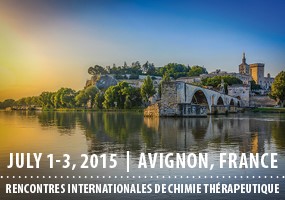|
|
“Understanding Targets and Mechanisms”
Drug discovery is evolving rapidly even if the goal remains the same: identify new efficient and safe drugs to treat patients. And if there is still a lot to do to tackle unmet medical needs, more and more tools are also available for the researchers to identify the right biological target and the drug that will interact positively with this target.
Today, the drug discovery activities start from patients with major focus on the human disease tissues and their differences with the corresponding normal tissue. With the rise of genomic and proteomic tools, more and more data can be generated from these tissues. Companies and hospitals are creating their own bio-bank in order to valorise the expertise they develop day after day in treating patients in a specific disease area. A lot of patient databases are also created and can be queried and analysed to further understand the role of a target or a specific pathway within a disease. The constantly growing patient data available, combined with the flow of genomic data and the power of the informatics tools opened new avenues to identify novel targets and better understand the pathways and the link with the disease. Not surprisingly, big pharma companies recently signed major partnerships with famous informatics companies (Johnson and Johnson with IBM, Abbvie with Google) illustrating the attractiveness of combining cloud computing, genomic analysis and drug development. This patient based approach has also the advantage to give access more rapidly to some potential biomarkers in the clinical trials and also to lead to a better patient stratification, giving the treatment all the chances to be evaluated on putative responders and thus reducing the attrition rate.
So understanding the targets and mechanisms is a critical exercise in drug discovery. Part of this work is related to the identification the natural substrate of a given target (as for example “de-orphanizing” a GPCR), to the understanding the scope of a biological pathway with identification of the targets involved, and to the validation of these targets using chemical and biological tools. This target and mechanism knowledge also helps to further assess target engagement in the in vivo models used in LO phase. In a molecular approach, it is also important to understand better the conformational impact of a receptor on the signal transduction, and to lock a receptor in a given conformation thus triggering one or the other signalling pathway and checking the impact on the disease outcome. Last but not least, understanding the target is useful to select the drug discovery strategy: orthosteric vs allosteric modulators, small molecules vs antibodies, covalent binding vs reversible inhibition...
Clearly, there is a lot to understand on the biological targets and mechanisms to better and quicker design new drugs. All this knowledge on targets can be developed through a tight collaboration between biologists, bioinformatics, translational sciences, physicians and medicinal chemists. And there are numbers of novel techniques available through innovation in the academy world or technology driven biotechs. More and more, big pharma companies develop partnerships and collaborations and some of them are adapting their internal organisation in order to be more reactive to the outside world and make the best use of these external innovations a quick and efficient manner in their field of research. Biotechs, academia, hospitals and pharma companies have common interest to work together and combine their efforts to cover the unmet medical needs. Around the world, some geographical areas are gathering all these partners close together and thus are prone to become “clusters of innovation” for the identification of novel targets and new drugs.
As medicinal chemists, we are in the heart of drug discovery, interacting with many different disciplines. Hope this RICT symposium will favour contacts amongst the medicinal chemists themselves so that we can learn from each other and thus contribute by our exchanges during conferences, posters or break to future innovation in drug discovery.
Dr Pierre Deprez
Discovery site head, Paris
Galapagos
|
Organised by
With the support of
EFMC Sponsored Event
Major Sponsors
Sponsors
Media Partners
|





















